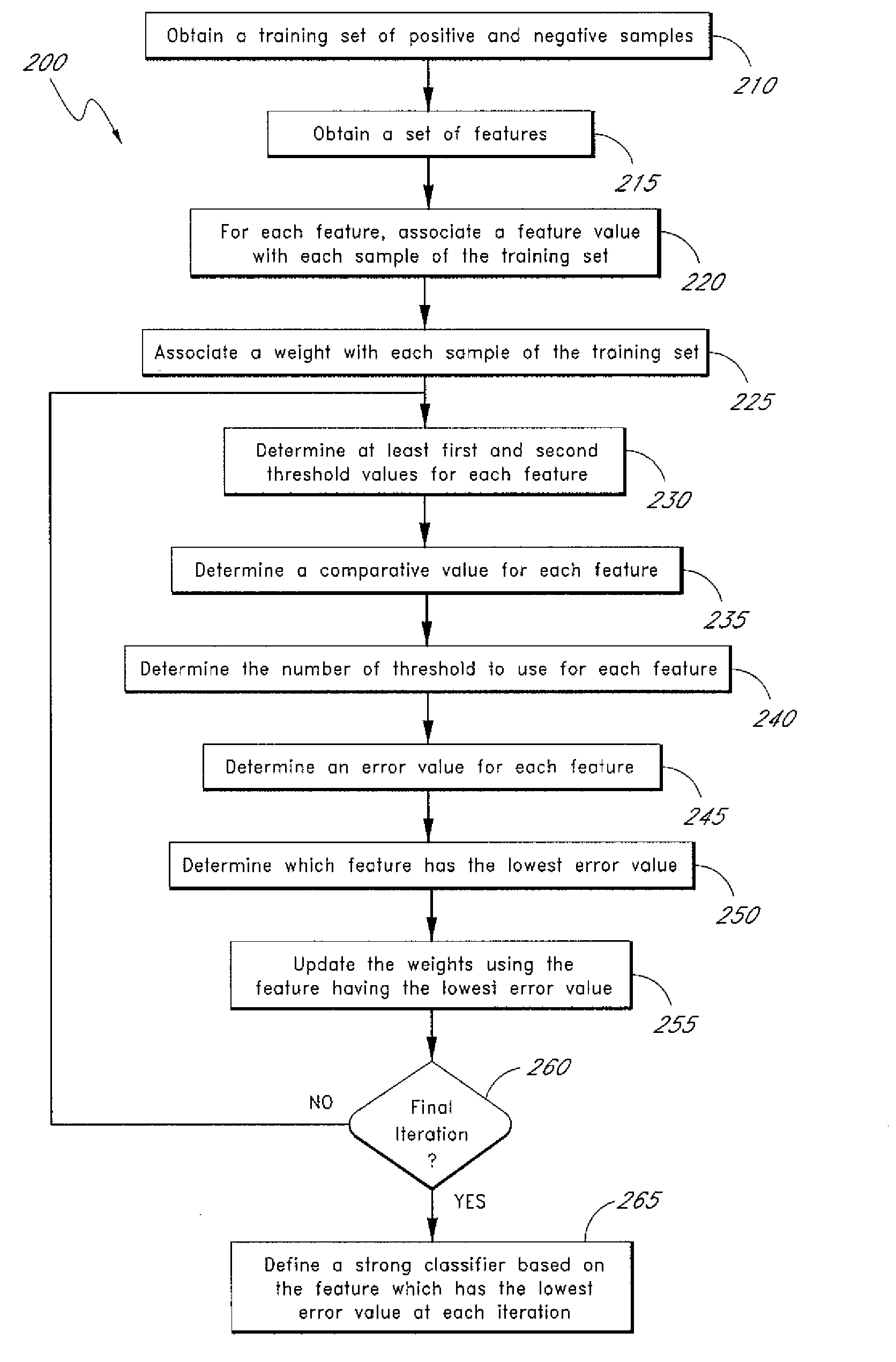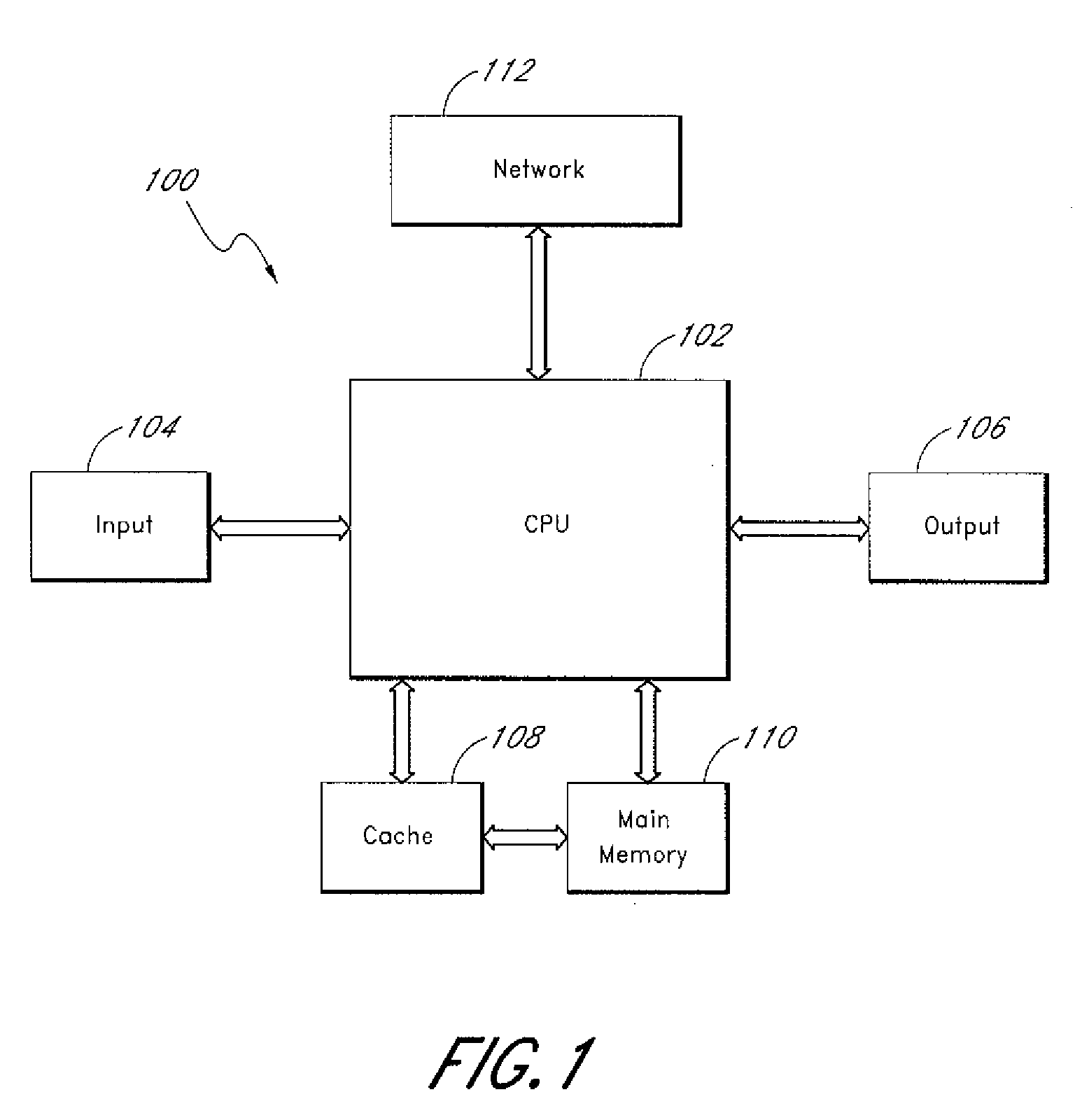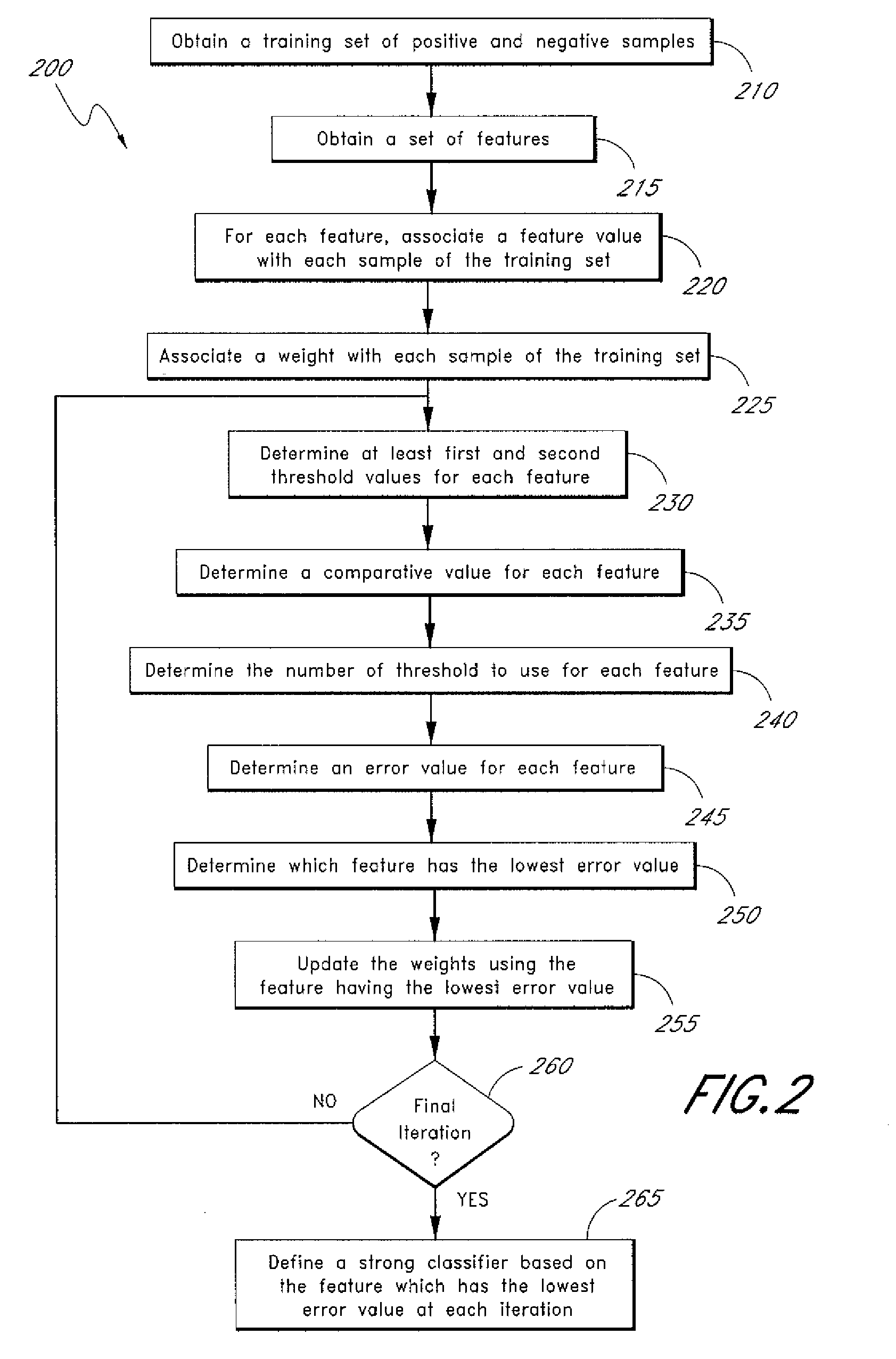System and method for object detection and classification with multiple threshold adaptive boosting
a technology of adaptive boosting and object detection, applied in the field of object classification and detection, can solve the problems of intensive computation, poor categorization performance, and computationally intensive task of a computer
- Summary
- Abstract
- Description
- Claims
- Application Information
AI Technical Summary
Benefits of technology
Problems solved by technology
Method used
Image
Examples
Embodiment Construction
[0022]The systems and methods of the development each have several aspects, no single one of which is solely responsible for its desirable attributes. Without limiting the scope of this development as expressed by the claims which follow, its more prominent features will now be discussed briefly. After considering this discussion, and particularly after reading the section entitled “Detailed Description of Embodiments” one will understand how the sample features of this development provide advantages that include classification of images into one or more class of objects.
[0023]Computer vision is the science and technology of automated image analysis enabling machines to see and analyze image data for various pieces of information. The image data can take many forms, such as single images, a video sequence, views from multiple cameras, or multi-dimensional data such as that received from a medical scanner.
[0024]A digital image is produced by one or several image sensors which, beside...
PUM
 Login to View More
Login to View More Abstract
Description
Claims
Application Information
 Login to View More
Login to View More - R&D
- Intellectual Property
- Life Sciences
- Materials
- Tech Scout
- Unparalleled Data Quality
- Higher Quality Content
- 60% Fewer Hallucinations
Browse by: Latest US Patents, China's latest patents, Technical Efficacy Thesaurus, Application Domain, Technology Topic, Popular Technical Reports.
© 2025 PatSnap. All rights reserved.Legal|Privacy policy|Modern Slavery Act Transparency Statement|Sitemap|About US| Contact US: help@patsnap.com



